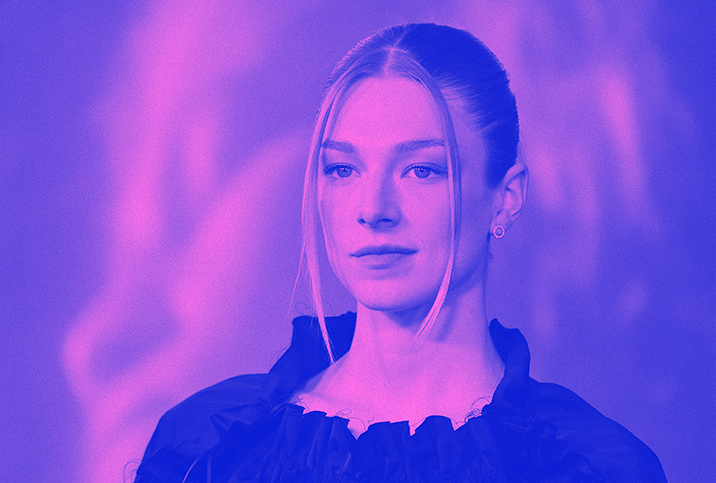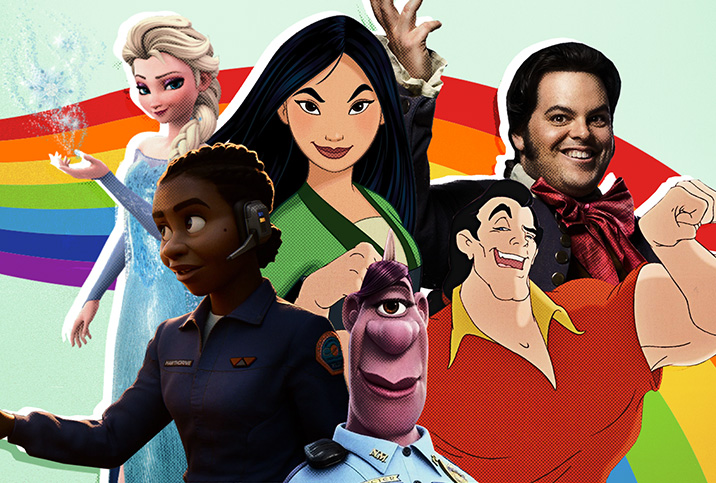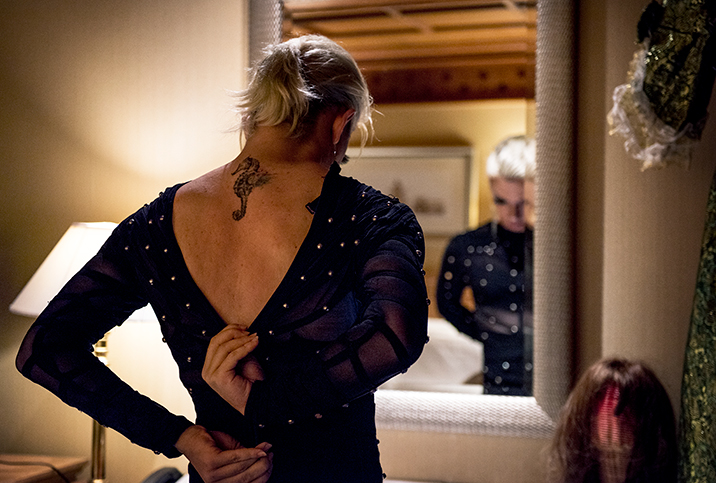The Changing Narrative Around Transgender Characters

Not long ago, transgender characters in film and television were reduced to derogatory stereotypes. Most often villains, victims or one-dimensional tricksters, transgender people were hardly ever presented in a positive light, and even less often portrayed by trans actors.
However, as audiences began yearning for authentic representation of various minority groups, the big and the small screen began to adapt. For example, the critical acclaim for shows such as "Orange Is the New Black" and "Pose" finally proved to the masses that trans stories could be rich and powerful.
From villains to heroes
While several trailblazing trans characters broke new ground on television, representation truly began to change and evolve with the introduction of actor Laverne Cox as Sophia Burset in "Orange Is the New Black." Not only did the show cast a trans actor to play the character—a turning point in and of itself—but it also offered a sympathetic portrayal that took dedicated time to explore what transition was really like, according to Erique Zhang, the managing director for the Center for Applied Transgender Studies and a doctoral candidate at Northwestern University in Evanston, Illinois.
"Representation before that tended to play on stereotypes," Zhang explained. "Sophia was somebody who was accepted in the space of the show and her transness was an important part of her character but wasn't something that caused conflict with the other characters."
Cox's character paved the way for more trans protagonists to appear on television. Since "Orange Is the New Black," trans characters and casting calls for trans actors to play them have increased. Some shows now even focus on trans stories. For Zhang, shows such as "Pose" (FX) and the Spanish limited series "Veneno" (available on HBO Max in the United States) changed how trans people are represented by centering their narrative around the characters' transness and their journeys, including the social discrimination they go through.
"It's still focusing on them being trans but trying to look more at how that affects their personal lives and their experiences rather than casting them as stereotypes," Zhang added.
Finding authenticity
More and more shows are now moving away from making a character's transness the defining aspect of their identity. It's very evident on shows like "Heartstopper" (Netflix), "Euphoria" (HBO) and the latest season of Netflix's "The Umbrella Academy." Instead of questioning their trans character's identities or turning their stories into a politically charged trans debate, these shows feature trans people who are accepted for who they are.
"With shows like ‘Heartstopper' and ‘Euphoria,' it's another interesting shift to me because their transness is not the defining character trait for Jules [in 'Euphoria'] or Elle [in 'Heartstopper'], and it's also not brought up to the surface a whole lot," Zhang said.
However, as beneficial as it is to show trans characters being treated like anyone else, Zhang believes it limits the authenticity of these portrayals. To Zhang, the fact that neither Jules or Elle are shown seeking out other members of the trans community may come across as unrealistic.
"It's a little tokenizing, not in the way that this one trans character is supposed to be representative of all trans people, but in the way that the friend group has the one trans person who doesn't seem to have other trans friends," Zhang explained.
In "The Umbrella Academy," actor Elliot Page's own coming out as a trans man was included in the show through his character, Viktor, also transitioning. This choice was designed to feel authentic. Page worked alongside "Umbrella" showrunner Steve Blackman and additional experts to craft a storyline that made sense for the character while coming across as honest.
For Zhang, media representation of trans stories ranges from realistic to idealistic. For example, they found it somewhat idealistic that Viktor's coming out didn't stir any awkward situations with his family. Page's character is never accidentally misgendered by anyone, for instance. However, they applauded the show for taking the opportunity to portray a trans person coming out, as this process is not often a big part of trans representation in popular media.
Giving hope to trans youth
Geared toward a younger audience, "Heartstopper" features Elle Argent, a young trans woman the audience meets after she has already transitioned. If the show does not ignore her transness, it also does not make it the focus of her storyline, allowing Elle to be surrounded by people who don't make a big deal out of her gender identity.
"I do think there's a lot of value in showing trans youth that they can live happy and fulfilling lives; to show somebody that has got to a point where she has friends who accept her for who she is, that she is in a place that doesn't treat her as different," Zhang said.
"Somebody like Elle does represent a lot of hope and a sense of a better future for trans people," they added. "'Pose' might be more realistic about trans experiences and the danger that trans people face, but it's not a feel-good story for the most part."
Shows like "Pose" are indeed very much focused on a sense of community and the safety that it provides, but also features trauma, which can make it daunting to watch. On the other end of the spectrum, shows like "Heartstopper" and "The Umbrella Academy" underline that trans people can lead an existence where their transness isn't a continuous source of problems.
Who tells trans stories?
An open letter from GLAAD (formerly Gay and Lesbian Alliance Against Defamation) to Hollywood advocating for better trans representation in films and TV shows pointed out that, "Hollywood tells the stories that help people understand how to feel about themselves and how to feel about people around them who are different."
To Zhang, this idea begs the questions of who in the film and television industry is writing and producing content about trans people and who do they envision their audience to be. A show like "Pose," which is about the experiences of trans women and written by trans women, is geared toward a transgender audience but is a rarity in the industry.
"When I think about how Elle or Jules are represented in 'Heartstopper' and in 'Euphoria,' it seems more like the target audience is not trans people," Zhang said. "It seems more like those shows are written to show cisgender people that trans people are just like everyone else."
While there is value in normalizing trans people in society and portraying them as everyday people, Zhang added they were not convinced a young trans person trying to figure out their own identity would watch "Euphoria" or "Heartstopper" as a way to understand themselves.
"I would like to see more media that's not only written but also produced and directed by transgender people, because I think there is a matter of who has the power behind the scenes to make decisions about what kind of stories are told," Zhang said.
They added that they would also like to see more nuanced and complex trans stories, such as Spain's "A Fantastic Woman," a 2017 film about a transgender woman.
"I think finding a middle place, something that shows realistically what it's like for trans people to be out in the world but isn't focused on the trauma and the hardships that they go through, I'd like to see that," Zhang explained.
There is still room for improvement for transgender representation in the media, but the characters and stories told within the past few years are moving the needle forward.



















Commentary